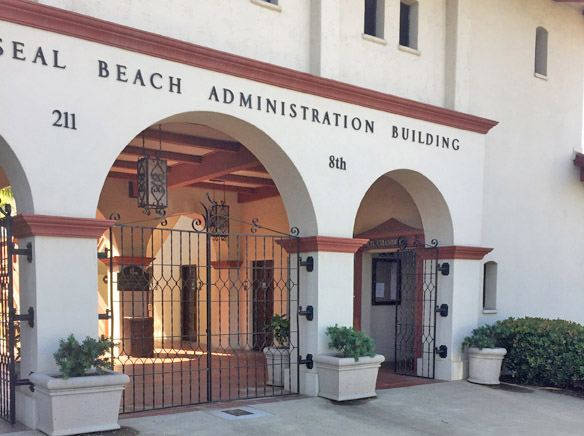Seal Beach will let its ban on commercial evictions expire. The city will take a wait and see approach to the residential eviction moratorium.
At the end of this month, the statewide bans on commercial and residential evictions end, according to the Seal Beach city attorney.
In April 2020, Seal Beach passed two urgency ordinances, one banning evictions of commercial tenants and another banning residential evictions. City staff needed direction so they could prepare any required council resolutions before the end of September.
This week the City Council, based on staff advice, unanimously agreed to let the commercial eviction moratorium expire. The council also agreed to have city staff monitor the residential eviction issue before the city does anything.
City Attorney Craig Steele told the council that staff had not heard of any local need to protect commercial tenants from eviction, as landlords and tenants have apparently worked out those matters for themselves.
Steele said Seal Beach staff didn’t see a clear way forward on the residential eviction side.
District One Councilman/Mayor Joe Kalmick said he would prefer to let staff monitor the residential eviction situation before the council made a policy.
“I agree with what the mayor says,” said District Five Councilwoman Sandra Massa-Lavitt. She speculated that they would know in a couple of days if the California governor would take action on evictions. District Two Councilman Thomas Moore said he agreed with letting the commercial eviction moratorium expire.
Background
City staff this week recommended repealing the city’s ban on commercial evictions. Staff requested council direction on the residential eviction moratorium.
The city adopted a moratorium on commercial and rental evictions in Seal Beach on April 7, 2020, wrote City Attorney Craig Steele in his staff report to the council. According to Steele, this moratorium applied to “tenants in the City who could demonstrate a financial hardship and inability to pay rent as a result of COVID-19.”
“On September 30, 2021 the legal landscape will change with regard to both residential and commercial eviction moratorium ordinances,” Steele wrote. Last week, according to Steele, the U.S; Supreme court invalidated a Federal eviction ban.
“Seal Beach presently has more protection in place for residential tenants than was provided by the federal moratorium,” Steele wrote.
“The looming September 30, 2021 date and a local eviction moratorium may create more confusion for tenants and landlords because, under state law, tenants must continue to pay at least 25% of rent due to qualify for renter protections, and a significant pool of money has been set aside to help tenants and provide reimbursement for landlords,” Steele wrote.
“Under the City’s moratorium, however, tenants were not required to pay any specific portion of rent while the hardship is ongoing,” Steele wrote.
“This means that tenants who rely on the City’s moratorium may not be protected by state law,” Steele wrote.
“On the commercial side, the City has not been made aware of significant, unresolved, COVID-related issues between landlords and tenants in the City,” Steele wrote.
“On September 30, 2021 the Executive Order by the Governor that purported to give cities the authority to enact a commercial eviction moratorium expires,” Steele wrote.
“While a charter city such as Seal Beach likely has inherent power to take this step to protect health and safety without authority from the State, landlords may start to challenge local commercial eviction bans on this basis,” Steele wrote.












